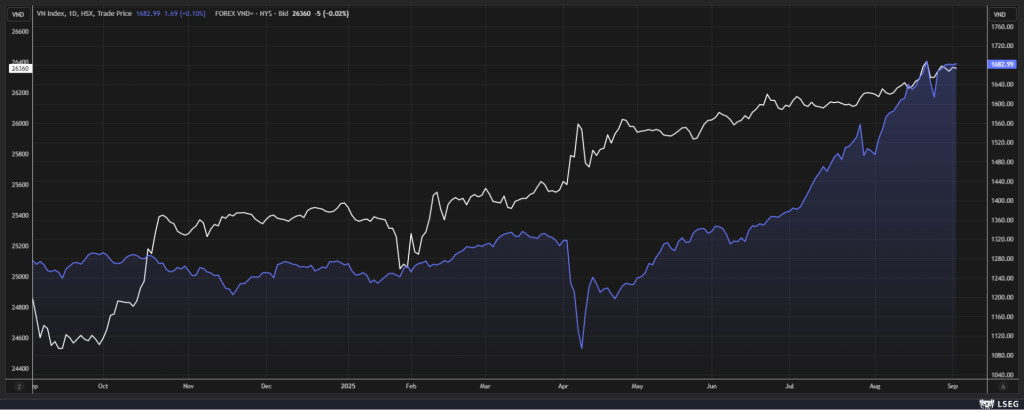Vietnam’s equity market has faced a turbulent period marked by heavy capital outflows and mounting pressure on the national currency, the dong. Still, the Vietnamese bourse holds firm.
Foreign investors pulled $1.5 billion from the market in August—the largest withdrawal in over a decade—triggered by escalating concerns over currency depreciation and global uncertainty.
Despite these headwinds, the VN Index remains a standout in the region, climbing more than 32% year-to-date. The rally has been fueled by robust local participation and improving earnings from Vietnamese firms, even as international investors trim exposure. However, analysts caution that higher valuations stemming from the recent surge may be exacerbating the dong’s slide, which has tumbled 3.4% against the U.S. dollar so far in 2025—the steepest drop among Southeast Asian currencies.

The currency’s fall to an all-time low has prompted forecasts of further declines. MUFG Bank projects the dong could weaken to 26,500 per dollar by the end of the year, stoking apprehension about the impact on equity valuations and investment inflows.
While the stock market appears broadly resilient for now, ongoing exchange rate volatility and shifts in global risk appetite continue to cast a shadow over near-term prospects.





